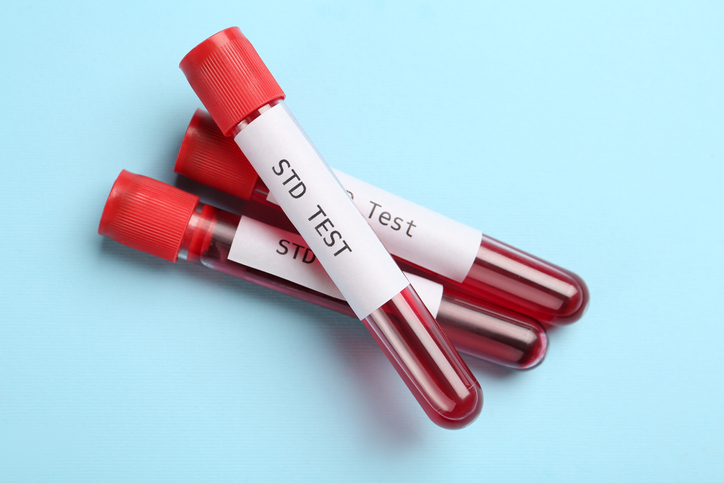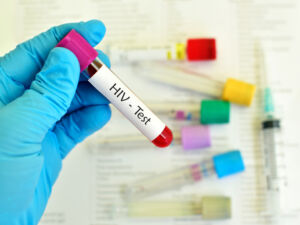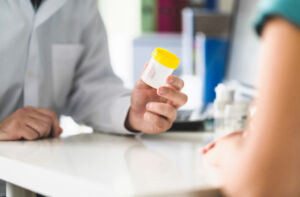Why Do Men and Women Need to Have STD Checkups?
Different Sex Hormones and Pregnancy
There are many hormones in women and men that can affect our health. One of these is estrogen, which can increase during pregnancy and play an important role in the development of a child. However, there are also differences between the sexes which can affect the ability of the body to fight off infections. The ‘why’ is complex and the ‘how’ is not known, but there are several theories as to why some people are more susceptible to getting an STD while others are not. It is important to get STD testing in Los Angeles or where you live to avoid the risk of the disease.
STD Symptoms for Women
When it comes to STDs, the most common ones among women are bacterial infections (streptococcal and gonorrhea) and viral infections (chlamydia, genital herpes, papillose, and syphilis). While bacterial infections are more prevalent in women, higher levels of viral infections are seen in men. The key to preventing these infections is to use a condom when having sex and to get same-day std testing in Los Angeles in anticipation of a possible relationship. A bacterial infection, also called an STD, can be passed from one person to another through sex.
These infections are spread through skin-to-skin contact, sharing toiletries, and through things such as unhygienic practices such as not washing your hands properly. Bacterial infections, such as gonorrhea, can also occur inside the vagina, but most cases are from outside the body. Threats to your health, like getting an STD, can be prevented by practicing good hygiene, using a condom, and getting an STD test before having sex.
STD Symptoms for Men
For men, the primary concern is the risk of passing on an STD to one’s partner. While you might not be able to predict if your partner has an STD, a routine STD test can help determine if you should abstain from sex. There are many different types of STDs and they are spread through different types of contact, including Erogenous contact, such as kissing, cuddling, and sex. Vulvar, vaginal, and anal intercourse. Many clinics provide STD testing in California
Sharing multiple things like using a toothbrush, razors, deodorant, and feminine hygiene products. Using a foreign object, like a needle or syringe, in your rectum.
HIV and STD Infection Statistics: This is the first in a series of articles on the importance of having an STD test in order to “prevent” or “prevent and treat” STDs. The purpose of this article is to give you information on how your body deals with and protects itself from STD infection, as well as the risks and complications that come with it. While there are many risks associated with having an STD, the majority of people infected will not develop symptoms.
According to statistics, an estimated 75% of people with an STD will have no symptoms, and only about 5% of people will develop the following:
Chronic Pelvic Inflammatory Disease (CPI) – A condition that can develop during or after pregnancy, in which inflammation and scarring of the inner wall of the uterus can lead to long-term side effects, including the growth of extra uterine tissue, infertility, and much higher risk of getting cancer.
Gonorrhea – A bacterial infection that is highly infectious. It is often treated with medication, but it can be difficult to control.
HIV/AIDS – A condition that can affect anyone regardless of age, race, or gender. HIV is not spread through sex, but there are risks associated with unprotected sex even if you have HIV-negative blood.
Preventing STDs
While it is always important to be careful with your sexual partners, you can also protect yourself by following these tips:
Wash your hands well after sex and use a condom. Get tested for STDs before having sex. Limit alcohol intake. Practice safe sex. Use a bathroom that is kept clean and free of obstacles, such as urinals, stalls, or showers. Keep your bedroom door closed when you’re in there. Use a flashlight during nighttime activities so that you are not accidentally blinding yourself.
Use a Ladies’ Health Checkup When you are about to conceive, you should speak to a qualified health care professional about your health. This is so that you can determine your current health and any risks to your fetus. This is to ensure that you are up to date on your medications, have a good diet, and are getting enough exercise. Your health care professional will be able to refer you to the right doctors and specialists and provide you with accurate and up-to-date information. You should also get a pregnancy checkup during your pregnancy to make sure you are healthy and safe. A Pregnancy Health Checkup is a thorough examination of the fetus during pregnancy. It is not only to check your progress but to check the progress of your partner as well. This is so that your health care professional can better monitor your progress and manage your care.
What Are the Benefits of an STD Checkup?
As you can see, having a STD test in California is very important. It allows you to identify any potential health problems that you may be unaware of, and it allows your health care provider to better manage your health. It is even more important to have an STD checkup if you are having sex with a new partner, or if you have recently had unprotected sex. Having regular checkups can help you to stay healthy and save yourself from significant health problems caused by an STD, like:
- Gonorrhea – A rare but significant bacterial infection that can be serious. It is treatable with antibiotics.
- HCV – An infection that is becoming more common among people who enjoy traveling abroad, including international students and workers, due to increased immigration and immigration in the U.S. HIV – Also known as “aids,” this is a serious infection that can be difficult to treat.
- Malaria – A potentially life-threatening disease caused by parasites. It is spread through the sharing of contaminated water or food.
- Mastitis – A painful swelling of the breast that can occur during pregnancy, lactation, and after surgery.
- Pelvic Inflammatory Disease (PID) – A condition characterized by inflammation of the upper and lower part of the uterus. It is treatable with surgery.
- Sida – Also known as “Chinese” or “OLY” or “oxidative lupus,” this is a chronic, often genitourinary disease that is estimated to affect 1 out of 100,000 people.
Should You Have an STD Test?
Having an STD test is important, but it is not necessary. While it is important to know your current health status in order to make sure you are safe, it is not necessary to have an STD test in order to be healthy. You should have an STD test if you are:
- Aged – The risk of getting an STD is higher for people who are aging.
- Pregnant – The risk of getting an STD during pregnancy is very high.
- Having an abnormal pregnancy – If you have any type of growth in your uterus, it is important to get an ultrasound to rule out pregnancy.
- Lactating – Lactating women should get an STD test every year to make sure that they are healthy


